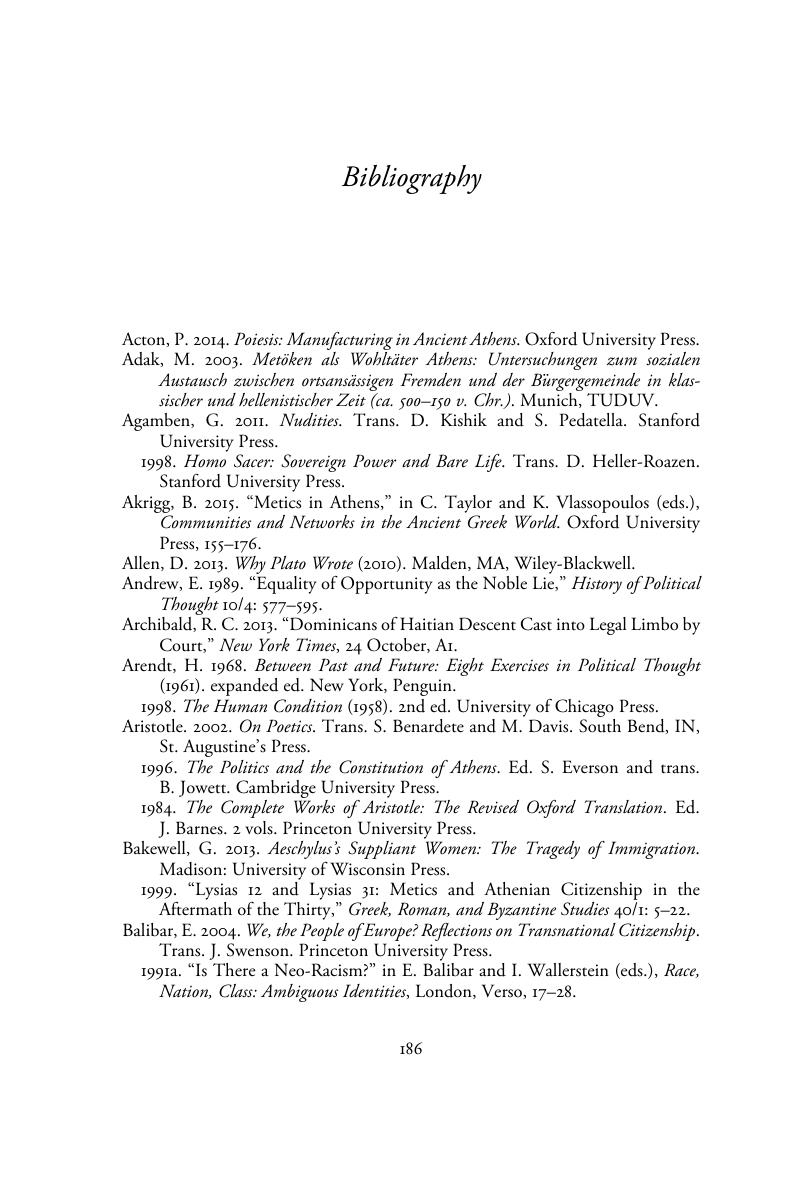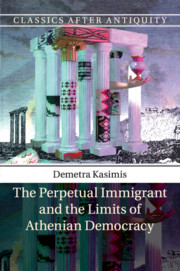Book contents
- The Perpetual Immigrant and the Limits of Athenian Democracy
- Classics after Antiquity
- The Perpetual Immigrant and the Limits of Athenian Democracy
- Copyright page
- Dedication
- Contents
- Acknowledgments
- Series Editors’ Preface
- Part I Autochthony Trouble
- Part II A Metic Republic in Three Acts
- Part III Evading Detection
- Conclusion Political Theory from the Edges of Athenian Democracy
- Appendix: A Metic Timeline
- Bibliography
- Index
- References
Bibliography
Published online by Cambridge University Press: 27 July 2018
- The Perpetual Immigrant and the Limits of Athenian Democracy
- Classics after Antiquity
- The Perpetual Immigrant and the Limits of Athenian Democracy
- Copyright page
- Dedication
- Contents
- Acknowledgments
- Series Editors’ Preface
- Part I Autochthony Trouble
- Part II A Metic Republic in Three Acts
- Part III Evading Detection
- Conclusion Political Theory from the Edges of Athenian Democracy
- Appendix: A Metic Timeline
- Bibliography
- Index
- References
Summary

- Type
- Chapter
- Information
- The Perpetual Immigrant and the Limits of Athenian Democracy , pp. 186 - 199Publisher: Cambridge University PressPrint publication year: 2018



